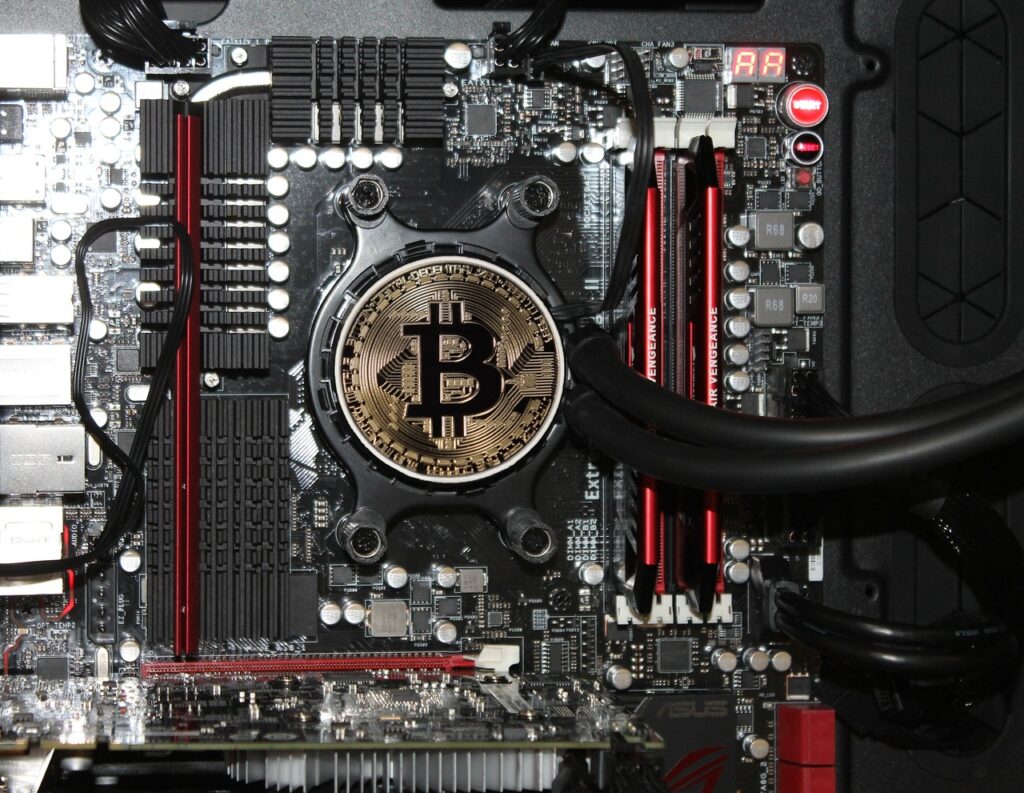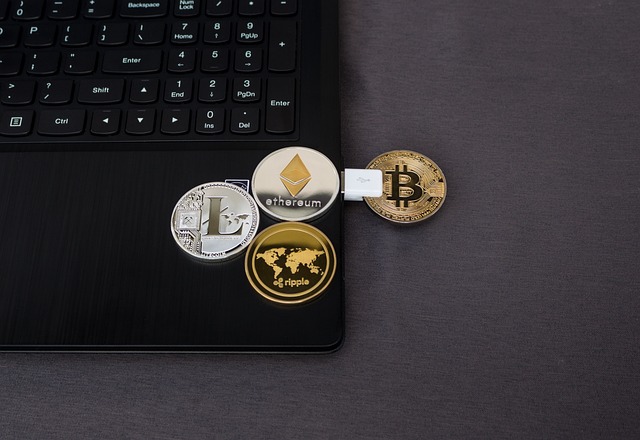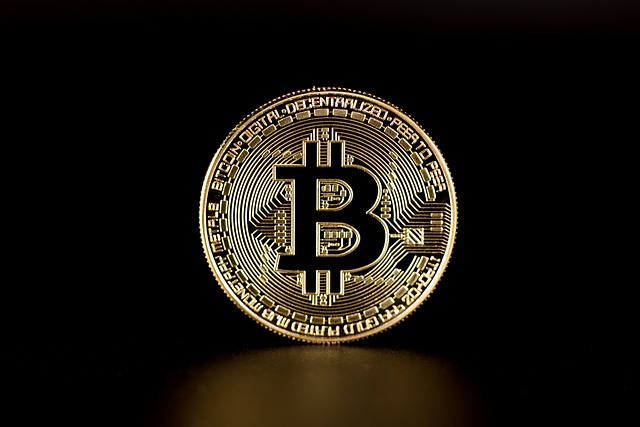The Tech Innovations Driving DeFi’s Meteoric Rise
The Tech Innovations Driving DeFi’s Meteoric Rise

– Decentralized Exchanges: The rise of platforms that allow peer-to-peer trading without intermediaries
Decentralized exchanges (DEXs) have been gaining significant traction in the world of cryptocurrency trading. These platforms provide a revolutionary alternative to traditional centralized exchanges by allowing users to trade directly with one another, without the need for intermediaries. This peer-to-peer approach not only eliminates the reliance on a central authority but also provides users with greater control over their assets.
One of the key advantages of decentralized exchanges is the increased privacy and security they offer. With DEXs, users retain control of their private keys and funds, reducing the risk of hacking and theft. Additionally, without the need for intermediaries, such as custodial wallets or exchanges, users are not required to deposit their funds into a centralized platform. This means that DEXs are less prone to hacking incidents and users have a reduced risk of losing their assets. Overall, the rise of decentralized exchanges is revolutionizing the crypto space, empowering users to take control of their own trading and promoting the principles of decentralization and financial sovereignty.
– Smart Contracts: The backbone of DeFi, enabling automated and trustless transactions
Smart contracts play a crucial role in the world of decentralized finance (DeFi), serving as the backbone that enables automated and trustless transactions. These self-executing contracts are built upon a blockchain network, such as Ethereum, and are designed to automatically execute predefined actions once specific conditions are met. Unlike traditional contracts that require intermediaries to enforce and verify the terms, smart contracts eliminate the need for third-party involvement, making transactions more efficient and secure.
One of the key advantages of smart contracts is their ability to automate processes without the need for manual intervention. By utilizing pre-programmed logic, these contracts can execute actions such as transferring digital assets, distributing funds, or validating transactions, all without the need for human oversight. This automation not only saves time and reduces costs but also eliminates the potential for human error or fraud, providing a high level of trust and reliability in the DeFi ecosystem. Additionally, smart contracts ensure transparency as all contract terms and execution outcomes are recorded on the blockchain, making them easily auditable and accessible to all participants.
– Stablecoins: A game-changer for DeFi, providing stability in an otherwise volatile market
Stablecoins have emerged as a game-changer in the world of decentralized finance (DeFi), offering much-needed stability in an otherwise volatile market. Unlike traditional cryptocurrencies like Bitcoin and Ethereum, which experience significant price fluctuations, stablecoins aim to maintain a stable value by pegging their worth to a particular asset. This can be a fiat currency like the US Dollar or a basket of commodities such as gold. By doing so, stablecoins provide a reliable medium of exchange within the DeFi ecosystem, enabling users to transact and hold assets without worrying about sudden value swings.
The importance of stablecoins cannot be overstated. They address one of the biggest challenges in DeFi – the lack of stability. Many individuals and institutions are hesitant to fully embrace cryptocurrencies due to the inherent risk and volatility associated with them. Stablecoins bridge this gap by offering a sense of stability and predictability, making them a more attractive option for both traders and investors. Moreover, stablecoins also facilitate quick and efficient transactions within the DeFi space, as the stable value allows for seamless swapping and trading without the need to convert back and forth between cryptocurrencies and fiat currencies. With the increasing adoption of stablecoins, DeFi is gradually becoming a more accessible and secure alternative to traditional finance.
– Liquidity Mining: How users are incentivized to provide liquidity to DeFi platforms
Liquidity mining is a mechanism in the decentralized finance (DeFi) space that aims to incentivize users to provide liquidity to various DeFi platforms. In simple terms, liquidity mining involves users locking their funds into a smart contract or protocol and in return, they receive rewards or tokens. These tokens can then be used for trading, staking, or other activities within the DeFi ecosystem.
The concept of liquidity mining has gained popularity due to its potential to attract liquidity and bootstrap liquidity pools for DeFi platforms. By providing liquidity, users help ensure that there are enough funds available for trading on the platform, which in turn enhances the overall user experience. Moreover, liquidity mining helps market participants to access a wider range of financial services, enabling them to earn passive income by simply supplying their funds to the ecosystem. Overall, liquidity mining has become a vital tool in building a thriving and sustainable DeFi ecosystem.
– Flash Loans: The emergence of instant, uncollateralized loans within the DeFi ecosystem
Flash loans have revolutionized the world of decentralized finance (DeFi) by introducing instant and uncollateralized loans within the ecosystem. Unlike traditional loans that require borrowers to provide collateral as security, flash loans eliminate this requirement. This means that users can borrow a substantial amount of cryptocurrency without having to own any assets or provide any form of collateral.
The emergence of flash loans has opened up numerous opportunities for DeFi participants. Traders can now engage in arbitrage opportunities across different platforms by borrowing substantial amounts of cryptocurrency and executing trades instantaneously. This has led to increased efficiency in the market, as traders are able to exploit price discrepancies and make profits without having to lock up their funds as collateral. Additionally, flash loans have allowed developers and entrepreneurs to experiment with new financial products and services, as they can access large sums of capital without the need for traditional lending processes. The dynamic nature of flash loans has brought not only convenience but also a new level of creativity to the DeFi ecosystem.
– Yield Farming: Maximizing returns by strategically investing in various DeFi protocols
Yield farming has emerged as a popular method for maximizing returns in the world of decentralized finance (DeFi). By strategically investing in various DeFi protocols, users can earn attractive yields on their digital assets. The concept behind yield farming revolves around providing liquidity to these protocols in exchange for rewards. This involves depositing cryptocurrency into designated pools, allowing the protocol to utilize those funds for various activities, such as lending or borrowing. In return, users are rewarded with additional tokens or fees generated by the protocol. Yield farming has gained traction due to its potential for high returns, but it also comes with certain risks that investors should be aware of, such as smart contract vulnerabilities and market volatility.
One of the key advantages of yield farming is its flexibility. Users have the freedom to choose from a wide range of DeFi protocols offering different incentives and rewards.

– Interoperability: The importance of seamless integration between different DeFi platforms
In the rapidly evolving world of decentralized finance (DeFi), interoperability has emerged as a crucial factor for the seamless integration of different platforms. The importance of interoperability lies in its ability to connect various DeFi protocols and allow them to work together harmoniously.
Interoperability enables users to seamlessly transfer funds and assets between different platforms without the need for multiple transactions or intermediaries. By breaking down barriers and establishing a common language, interoperability fosters collaboration among DeFi platforms, enabling users to access a wider range of financial services and tap into the full potential of the DeFi ecosystem.
Moreover, interoperability also enhances the efficiency and scalability of DeFi protocols. By enabling interoperability, users can leverage the unique strengths and functionalities of different platforms, maximizing the benefits they receive.

– Oracles: Connecting DeFi with real-world data to enable reliable decision-making
Oracles play a crucial role in bridging the decentralized finance (DeFi) world with real-world data. They act as the intermediaries between smart contracts and external sources of information, such as price feeds, weather data, or even sports scores. By providing this external data to DeFi platforms, oracles enable reliable decision-making within the ecosystem.
For example, let’s say you want to create a lending platform on the blockchain that determines interest rates based on market conditions. You would need accurate and up-to-date information about the current interest rates in the traditional financial system. This is where oracles come in. They fetch this data from trusted sources, like financial institutions, and feed it into the smart contracts. As a result, your lending platform can make informed decisions and adjust interest rates accordingly, ensuring fairness and transparency. Oracles are the vital link that brings the real world into the DeFi space, adding trust and stability to the ecosystem.
– Layer 2 Solutions: Scaling solutions that address the scalability issues of DeFi protocols
One of the key challenges facing decentralized finance (DeFi) protocols is scalability. As the popularity and usage of DeFi platforms continue to grow, the existing blockchain infrastructure struggles to handle the increasing transaction volume. This is where Layer 2 solutions come into play. Layer 2 scaling solutions provide a way to alleviate the scalability issues by offloading some of the transactions from the main blockchain onto secondary layers.
By moving transactions off-chain, Layer 2 solutions can significantly increase the capacity and speed of DeFi protocols. These solutions work by creating a separate layer that operates on top of the main blockchain, allowing for faster and cheaper transactions. Some popular Layer 2 scaling solutions include state channels, sidechains, and rollups. With the implementation of these solutions, users can enjoy a seamless experience while transacting on DeFi platforms without congesting the underlying blockchain network.
Note: The headings provided here are not in the specified format. They can be easily modified by adding numbers, bullets, or hyphens before each heading as desired.
Decentralized exchanges (DEXs) have become increasingly popular in the world of cryptocurrency trading. These platforms offer a peer-to-peer trading experience without the need for intermediaries like traditional exchanges. Instead, users can directly connect and trade with each other, maintaining control over their funds throughout the process. This decentralized approach provides greater security, transparency, and privacy for traders, as well as reducing the risk of hacks or fraud. With the rise of DEXs, we are witnessing a shift towards a more democratized and inclusive financial system where anyone can participate in trading without the barriers imposed by centralized authorities.
Smart contracts are at the core of the rapidly expanding ecosystem of decentralized finance (DeFi). These self-executing contracts are written in code and automatically execute actions when certain predetermined conditions are met. By eliminating the need for intermediaries and relying on tamper-proof blockchain technology, smart contracts enable automated and trustless transactions in various sectors of DeFi, such as lending, borrowing, and decentralized asset management. This innovative technology not only increases efficiency and reduces costs but also enhances security by removing the need for intermediaries who may be vulnerable to human error or malicious intent.

• Decentralized exchanges (DEXs) offer a peer-to-peer trading experience without intermediaries.
• Users can directly connect and trade with each other, maintaining control over their funds.
• DEXs provide greater security, transparency, and privacy for traders.
• They reduce the risk of hacks or fraud compared to traditional exchanges.
• DEXs contribute to a more democratized and inclusive financial system.
• Smart contracts are written in code and automatically execute actions when conditions are met.
• They eliminate the need for intermediaries in decentralized finance (DeFi).
• Smart contracts enable automated and trustless transactions in lending, borrowing, and asset management sectors of DeFi.
• They increase efficiency, reduce costs, and enhance security by removing human error or malicious intent.
• As DeFi grows, smart contracts will revolutionize financial transactions.
What are decentralized exchanges?
Decentralized exchanges are platforms that allow direct peer-to-peer trading without the need for intermediaries like banks or brokers. It enables users to trade cryptocurrencies directly with each other, providing more control and privacy.
What role do smart contracts play in DeFi?
Smart contracts are the backbone of decentralized finance (DeFi). They are self-executing contracts with the terms of the agreement directly written into code. In DeFi, smart contracts enable automated and trustless transactions, removing the need for intermediaries and ensuring transparency.
How do stablecoins benefit DeFi?
Stablecoins are a game-changer for DeFi because they provide stability in an otherwise volatile market. These cryptocurrencies are pegged to a stable asset like the US dollar, reducing the risk of price fluctuations. They allow users to participate in DeFi while minimizing exposure to market volatility.
What is liquidity mining in DeFi?
Liquidity mining is a way to incentivize users to provide liquidity to DeFi platforms. By depositing their assets in liquidity pools, users earn rewards in the form of additional tokens. This helps ensure sufficient liquidity for DeFi protocols and encourages participation in the ecosystem.
What are flash loans in DeFi?
Flash loans are a new concept in the DeFi ecosystem that allows users to instantly borrow funds without collateral. These loans are uncollateralized and need to be repaid within a single transaction. Flash loans have gained popularity for their ability to enable complex and rapid arbitrage opportunities within DeFi.
What is yield farming in DeFi?
Yield farming refers to the practice of strategically investing in various DeFi protocols to maximize returns. Users allocate their funds to different platforms to earn rewards, such as additional tokens or interest. Yield farming requires careful consideration of risks and rewards to optimize investment strategies.
Why is interoperability important in DeFi?
Interoperability is crucial in DeFi as it allows for seamless integration between different platforms. It enables users to freely move assets and data across various DeFi protocols, enhancing liquidity and expanding the possibilities for innovation and collaboration within the ecosystem.
What is the role of oracles in DeFi?
Oracles play a vital role in connecting DeFi with real-world data. They provide external information, such as price feeds or market data, to smart contracts, enabling reliable decision-making within DeFi applications. Oracles help bridge the gap between the decentralized blockchain world and the centralized real-world data.
What are Layer 2 solutions in DeFi?
Layer 2 solutions are scaling solutions that address the scalability issues of DeFi protocols. They aim to improve transaction throughput and reduce fees by moving some computational processes off the main blockchain. Layer 2 solutions help DeFi scale to accommodate a larger user base and enhance the user experience.
Todays Featured Product:
Buy, exchange and grow your crypto securely with a Ledger hardware wallet, combined with the Ledger Live app. It’s never been easier to keep your crypto safe and accessible. Buy direct from Ledger.com and get todays Special Offers Here.




